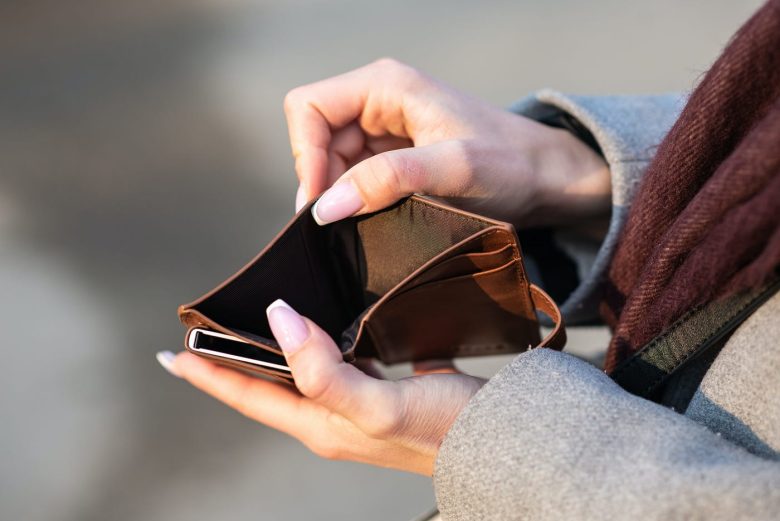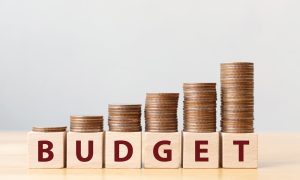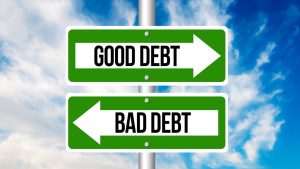Anyone can become overwhelmed by debt, which transforms financial security into a struggle to make monthly payments and manage interest rates. Some debts are necessary, like student loans or mortgages. However, unnecessary debts often result from poor financial planning and spending habits. The good news is? With a few simple strategies, you can gain control over your finances and escape the debt trap. These tips will help build better money habits and ensure financial stability without compromising your quality of living.
Understanding Your Spending Habits
You need to know where your money is going before you can improve your financial situation. The majority of people do not have a clear idea of their spending habits, making it difficult to identify problems. Track every expense you incur for a month. This includes the morning coffee, lunch, and any online subscriptions that you may have forgotten. Record each transaction using a smartphone application, spreadsheet, or even a simple journal. This exercise can reveal surprising patterns of spending, such as how small purchases made every day add up to hundreds per month. You can then identify the expenses that add real value to your life and those that drain your bank account.
Budgeting Basics
Budgeting might seem restrictive, but in reality it gives you more flexibility by letting you know exactly how much money you can spend on each category without getting into debt. As a starting point, use the 50/30/20 formula:50% of your income after taxes should be allocated to necessities like rent, groceries, and utilities; 30% for wants such as dining out, entertainment, and shopping; and 20% for savings and debt repayment. List your fixed costs first, and then look at what’s left for discretionary expenses. It’s important to be realistic about your expenses and income while still leaving some room for unplanned costs. Budgets are your financial road map, keeping you on track and focused.
Emergency Fund Importance
A financial safety net is an emergency fund. It prevents you from having to rely on credit cards for unexpected expenses. A car repair, medical bills, or a temporary job loss could quickly spiral into debt problems without this buffer. If necessary, start small. Even $500 can cover minor emergencies that you would have otherwise put on your credit card. Build an emergency fund that will cover 3 to 6 months’ worth of essential expenses. But don’t wait to start. This money should be kept in a separate account that is easy to access but not so convenient that you use it for non-emergencies. Cash is available to cover true emergencies, reducing the need to borrow money in stressful situations.
Credit Card Management
When used improperly, credit cards can become dangerous debt traps. Charge only what you can afford to pay back in full every month. You can benefit from the benefits of credit cards, like travel rewards or cashback, without paying any interest. Paying more than the minimum amount will help you reduce your principal quicker if you have a credit card balance. Use the debt avalanche technique, which involves paying the minimum on all your cards and putting the extra money towards the card that has the highest interest rate. Open only new credit cards if absolutely necessary. Also, resist the temptation to see your available credit limit as spending money.
Differentiating Needs from Wants: Needs vs. Wants
Confusing wants and needs is one of the main causes of unnecessary debt. Housing, food, transportation, and healthcare are all essentials to basic survival. All other items fall into the category of wants, regardless of how much they are desired or how reasonable they seem. Implement a wait period before making any purchases beyond your basic necessities. This can be 24 hours for small items, one week for moderate purchases, or one month for costly ones. This pause reveals the urgency of your initial purchase was more emotional than practical. If you decide to buy something, make sure it is within your budget and does not require credit. Delaying gratification improves your financial discipline and helps you avoid impulse purchases that can lead to debt.
Automated Savings
Savings automatically eliminates the temptation of spending money that you should be saving for emergencies or future goals. After each payday, set up automatic transfers to your savings account. The “pay yourself before you pay anyone else” method treats saving like any other important bill that needs to be paid. Over time, even small amounts can add up. $50 per week becomes $2600 annually. Open separate accounts to save for specific goals such as vacation funds, emergency money, or large purchases. You’ll be less likely to forget to save money if you set up automatic savings.
Regular Financial Checkups
Money management strategies need to evolve as your financial goals and situation change. Plan monthly reviews of your spending, budget, and progress towards financial goals. You can look for patterns of overspending and celebrate your successes. Then, adjust your budget to reflect what you have learned. Regular checkups can help you identify potential issues before they escalate into serious debt problems. This is a good time to check your credit card statement for unusual charges. You can also assess whether you need to adjust your emergency fund and evaluate whether your current financial strategy still works. Consider these reviews as preventive maintenance for your financial health.
Building Long-term Financial Stability
It’s not just about avoiding unnecessary debt; it’s also about creating financial stability so you have more options and less stress. You’ll benefit from the habits you form now, no matter what your future holds, be it income fluctuations, large purchases, or unexpected challenges. Don’t forget that it takes time to develop good financial habits, and setbacks are not failure. Consistency and learning from your mistakes are more important than quitting. You can develop financial security and confidence by implementing these strategies slowly and sticking to them.
FAQs
1. How much money should I put aside for an emergency fund?
Financial experts generally recommend saving between three and six months’ worth of essential expenses. Start by saving a small amount, like $1,000. Then gradually increase the goal to a larger one.
2. Should you pay off your debts or save first?
Prioritize paying off high-interest debts while maintaining the minimum saving contributions.
3. How can I save money if my income level is too low?
Start saving with anything, even $10 a week. Don’t wait for your financial situation to be “perfect” before you start saving.
4. What can I do to stick to my budget when there are unexpected expenses?
Create a category in your budget called “Miscellaneous.” This will cover small, unexpected expenses. Use your emergency fund instead of credit cards for larger emergencies.
5. Can I use a credit card if I pay it off monthly?
Credit cards can be used responsibly to build credit and earn rewards. Never charge more than you are able to afford each month.




